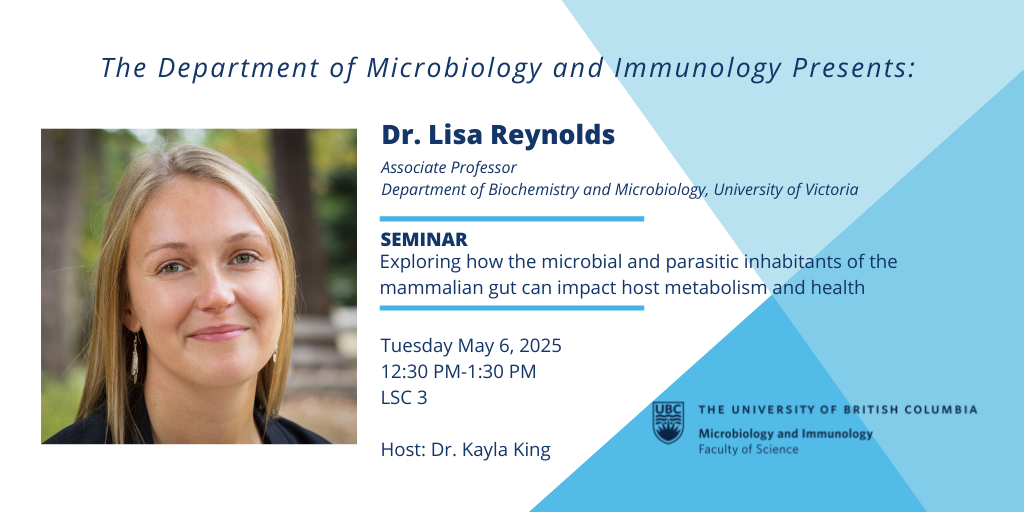
Seminar: Exploring how the microbial and parasitic inhabitants of the mammalian gut impact host metabolism and health
Abstract: The species that can live in the guts of mammals- including bacterial members of the microbiota and parasitic worms (helminths)- have each evolved mechanisms to exploit the mammalian intestinal environment and avoid being expelled by the host immune response. As a result, the presence of certain bacterial or helminth species in the gut can influence immune functioning and the overall health of their mammalian hosts.
In this talk, I will discuss two ongoing projects in the Reynolds lab: 1) Our recent work exploring how helminth infections impact the host bile acid pool: a group of small molecules present in bile that can influence intestinal physiology and have immunomodulatory activity. 2) Our work exploring how early-life disruption to the bacterial microbiota impacts the capacity of young mice to develop oral tolerance to food antigens, a critical process to avoid food allergies.
LSC 3 (Life Sciences Institute - 2350 Health Sciences Mall) MBIM itsupport@microbiology.ubc.ca America/Vancouver publicSeminar: Exploring how the microbial and parasitic inhabitants of the mammalian gut impact host metabolism and health
Abstract: The species that can live in the guts of mammals- including bacterial members of the microbiota and parasitic worms (helminths)- have each evolved mechanisms to exploit the mammalian intestinal environment and avoid being expelled by the host immune response. As a result, the presence of certain bacterial or helminth species in the gut can influence immune functioning and the overall health of their mammalian hosts.
In this talk, I will discuss two ongoing projects in the Reynolds lab: 1) Our recent work exploring how helminth infections impact the host bile acid pool: a group of small molecules present in bile that can influence intestinal physiology and have immunomodulatory activity. 2) Our work exploring how early-life disruption to the bacterial microbiota impacts the capacity of young mice to develop oral tolerance to food antigens, a critical process to avoid food allergies.

